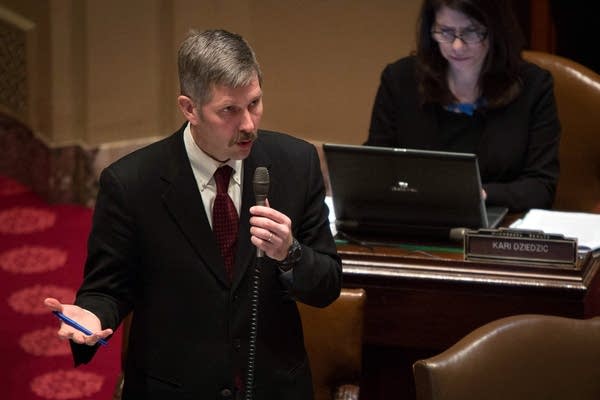Bill to make MNsure a state agency sparks criticism

Sen. Tony Lourey, DFL-Kerrick, pictured here in a 2013 file photo, has introduced legislation to make MNsure a state agency.
Jennifer Simonson | MPR News 2013
Go Deeper.
Create an account or log in to save stories.
Like this?
Thanks for liking this story! We have added it to a list of your favorite stories.


